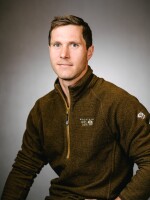Updated 11:45 a.m. MDT 8/2/19
Facing an already high rate of suicide in Utah, state officials are now taking a closer look at the scale of farmers taking their own lives.
The issue comes from a complex combination of factors affecting farm country, including financial insecurity, decades of agricultural consolidation, international trade disputes and natural disasters that experts say are pushing some farmers into hopelessness.
“When someone that’s providing perhaps our most valuable resource — in making it so that we have food to eat — feels that there’s no way out, that’s a hard thing,” said Kerry Gibson, the recently appointed commissioner of the Utah Department of Agriculture and Food.
Suicide was a central issue for Gibson, who comes from a line of dairy farmers in Weber County, in his plan to lead the agriculture department. A representative from his office said they are trying to gauge the extent of the problem in Utah and learn what resources are currently being used to address it.
In 2017 56% of farms across the nation experienced a net loss of income. In Utah that number was even higher at 65% losses, according to the United States Department of Agriculture.
“We must do more to extend resources and programs out to the farmers and ranchers experiencing pressures that lead to hopelessness, depression and thoughts of suicide,” Gibson wrote in a July op-ed in the Deseret News.
He cited factors including low prices paid to farmers in Utah in combination with the lack of control over their costs and unpredictable weather.
“They can do absolutely everything right and still lose money,” said Robin Hatch, a suicide prevention coordinator with Northeastern Counseling Center in Roosevelt, Utah. “There are so many factors out of their control.”
Hatch and her colleagues bought ad space in the 2020 Farmers’ Almanac describing warning signs for suicide. They plan to distribute them at feed stores and agriculture businesses around Utah’s TriCounty area in September for national suicide prevention awareness month. Northeastern Counseling and the TriCounty Health Department are also producing local radio and TV ads with the voice of Daniel Crozier, the vice president of the Utah Cattlemen’s Association, promoting the suicide prevention lifeline.
“A lot of times when resources are rolled out, they’re not rolled out to the rural communities,” Hatch said.
These disturbing trends in Utah correspond nationally as well. To Alicia Harvie, the advocacy and farmer services director with Farm Aid, there’s a “farm crisis” in America today.
“Farmers are experiencing the worst farm economy they’ve seen since the 1980s farm crisis,” Harvie said.
Farm Aid’s national farmers hotline had a 109% increase in calls last year, Harvie said. A third of those calls are typically crisis related, but last year over half were from farmers who were in crisis.
Many of the stressors affecting farmers are financial. Compounding that economic unpredictability is isolation in farming communities, lack of behavioral health services in rural America, and hesitance to seek therapy, according to Meg Moynihan a dairy farmer and senior advisor with the Minnesota Department of Agriculture, who spoke during a Farm Aid presentation on Thursday.
In addition to the Farm Aid hotline (1-800-FARM-AID), a number of farmer-specific resources are available including the Farm and Ranch Stress Assistance Network, a program meant to develop a network of “stress assistance programs to farmers, ranchers and others engaged in ag-related opportunities.”
Unlike some states, Utah does not have a crisis line specific to farmers, but the state suicide prevention hotline is staffed 24 hours a day and can be reached at 1-800-273-TALK (8255).


